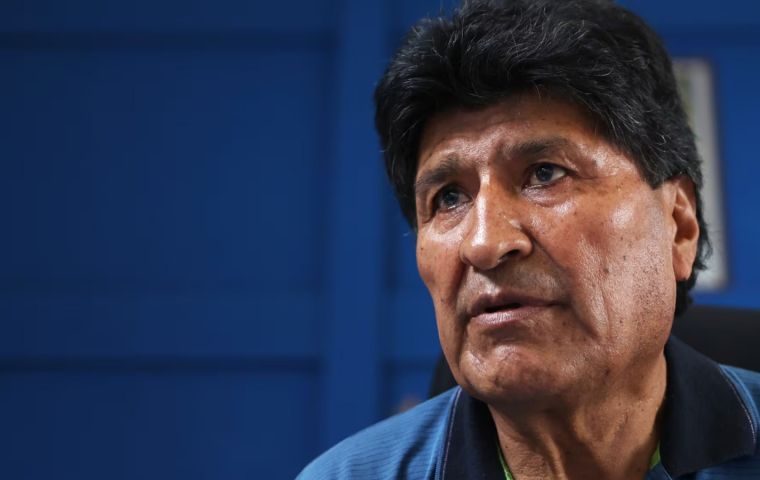MercoPress. South Atlantic News Agency
Bolivian court bans Evo Morales from running again for president
 Indefinite reelection is not a human right, the TCP also ruled
Indefinite reelection is not a human right, the TCP also ruled Bolivia's Plurinational Constitutional Court (TCP) ruled Wednesday that former president Evo Morales cannot seek reelection after two terms in office, regardless of whether continuous or discontinuous. The decision rendering such an endeavor unconstitutional came after a long session to be published in the Plurinational Constitutional Gazette.
However, the TCP noted that this decision applied to mandates held before Wednesday's ruling and stressed that indefinite re-election was not a human right.
Morales argued on Twitter that the Bolivian Constitution (Article 168) only prohibits continuous re-election and does not ban discontinuous terms, calling the TCP's decision a violation of the Constitution by “de facto magistrates.”
'The term of office of the president and vice-president of the State is five years, and they can be re-elected only once in a continuous manner',“ he maintained.
Wednesday's ruling also dismissed unconstitutionality claims against certain electoral provisions.
”The constitutionality of Art. 4. I of the Law of Normative Application - Law 381 of 21 May 2013 -, in accordance with the interpretation made by the present constitutional ruling, in relation to Art. 168 of the CPE, in the sense that the president and vice-president are entitled to a re-election for only one time in a continuous manner; considering that the term 'only once', also implies the limitation of reaching a third term, whether this is continuous or discontinuous,“ the TCP argued.
The TCP also pledged to undertake appropriate steps to prevent any actions ”that affect the development of the elections and that this ruling considers the determination of the sovereign in a referendum.”




Top Comments
Disclaimer & comment rulesCommenting for this story is now closed.
If you have a Facebook account, become a fan and comment on our Facebook Page!